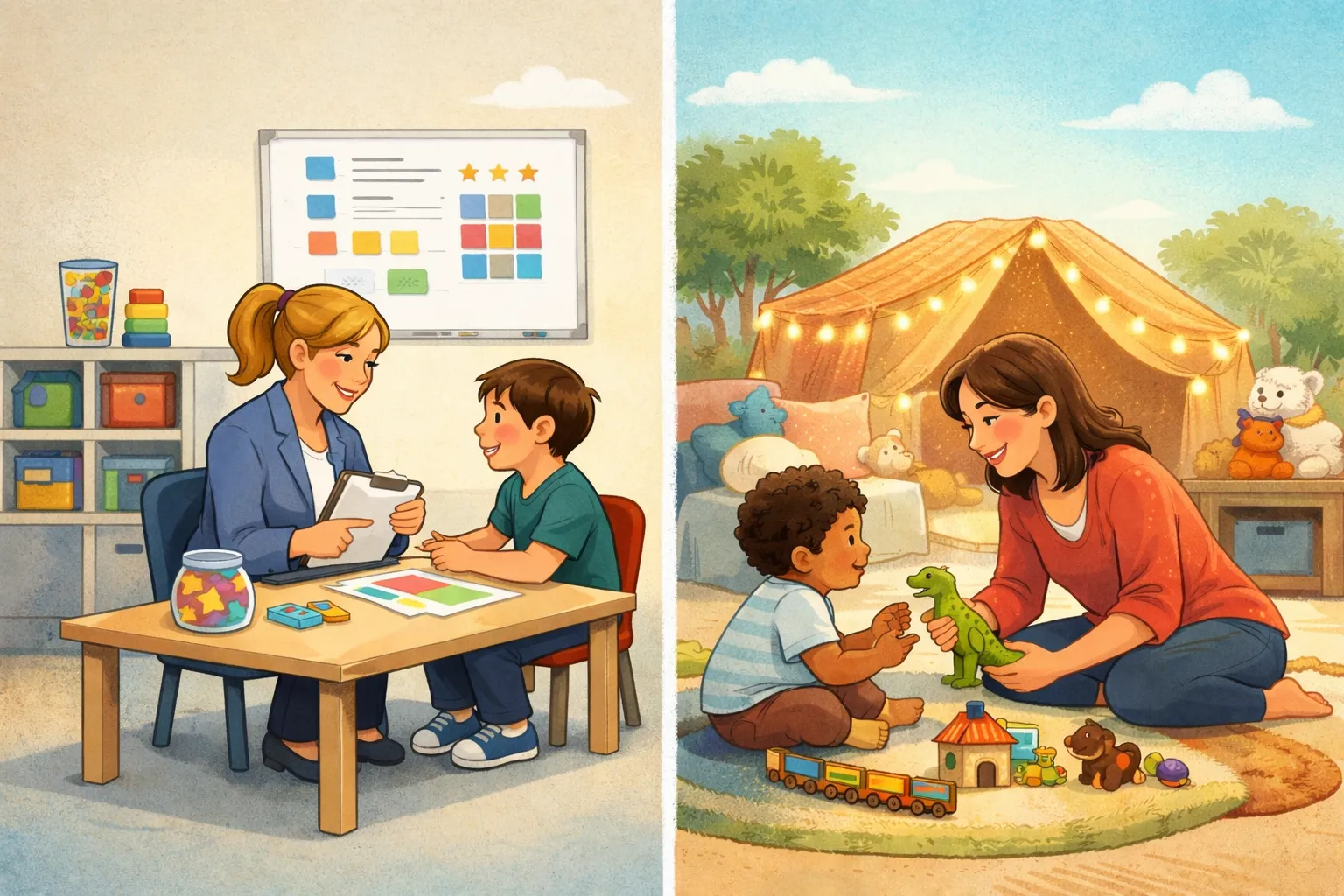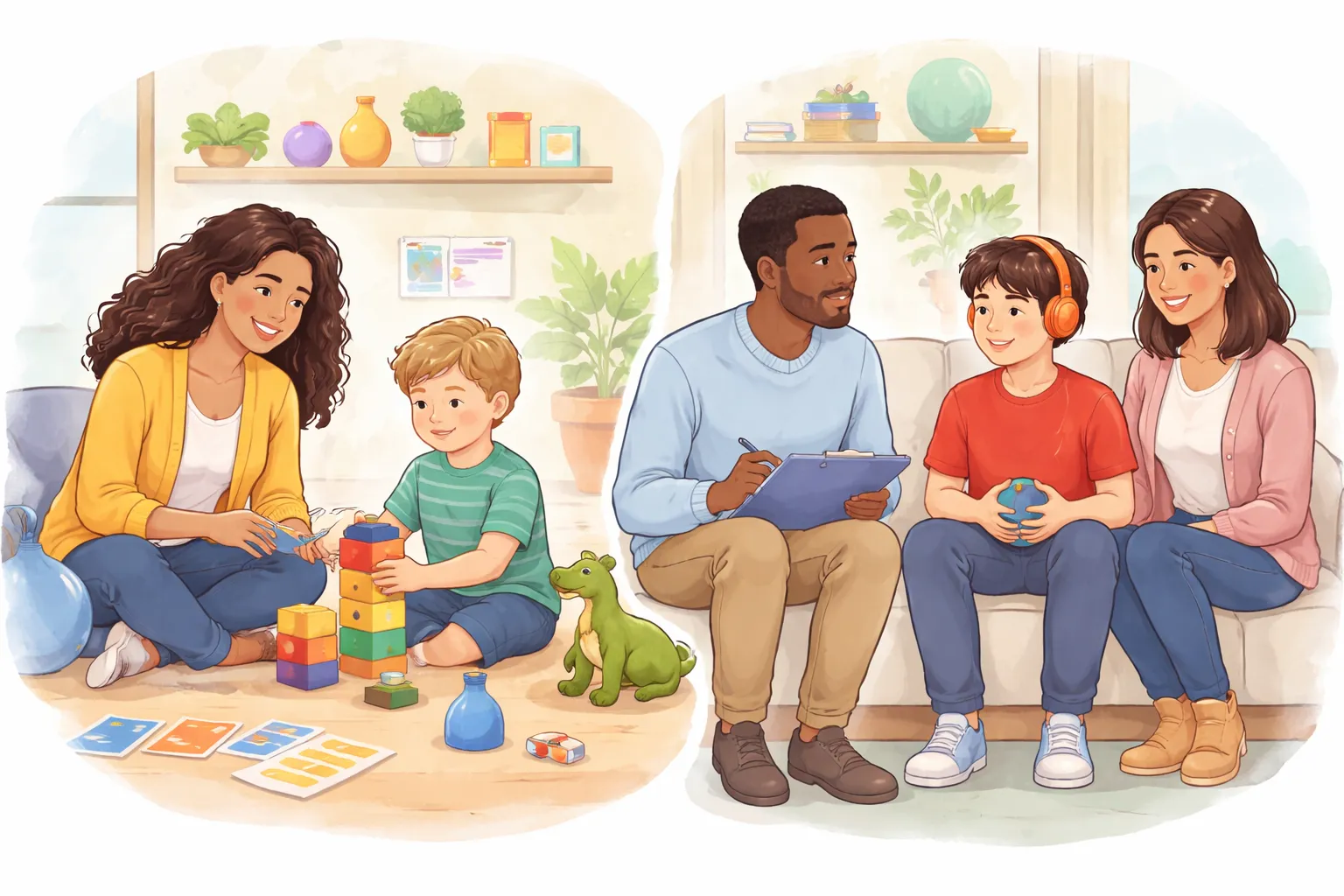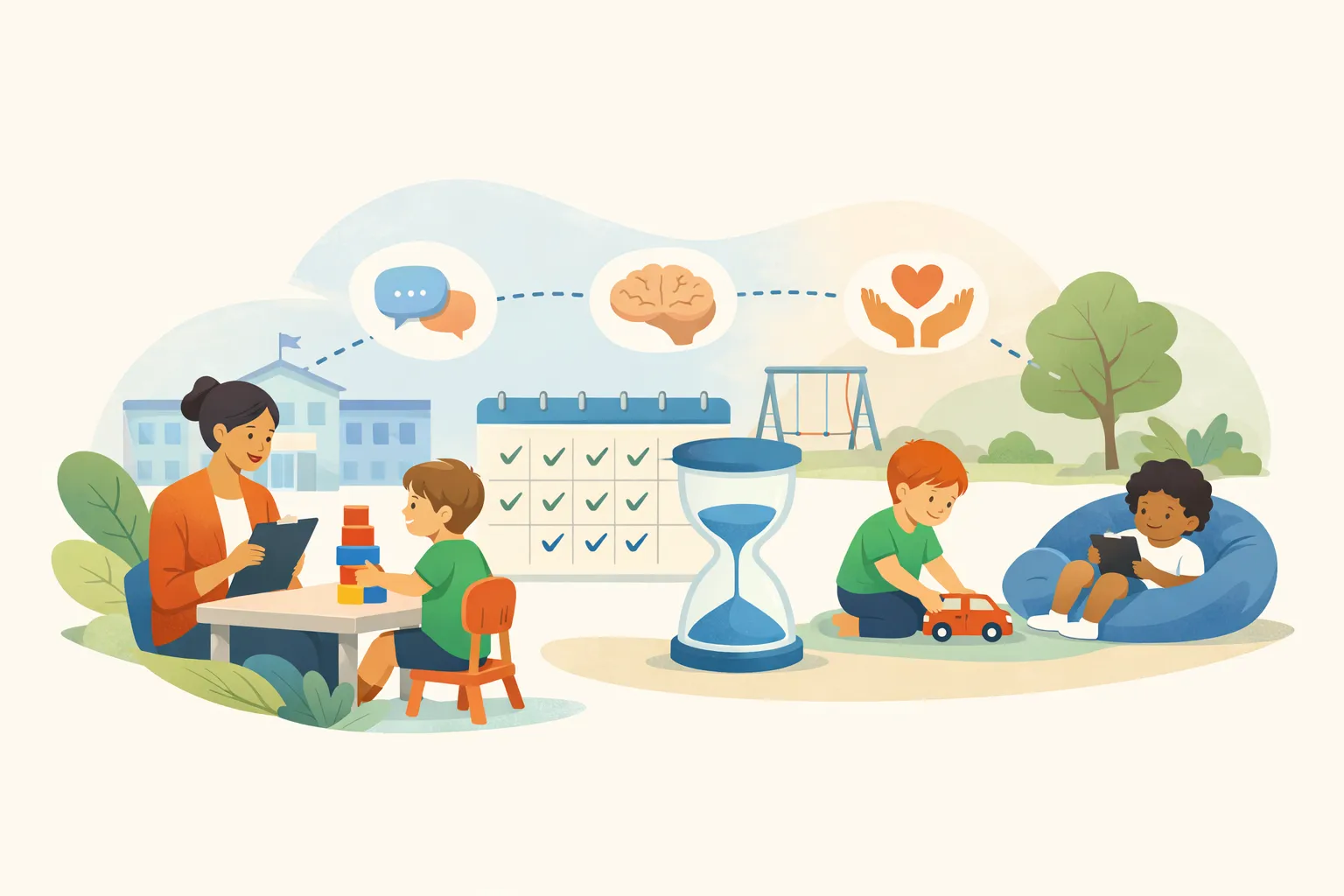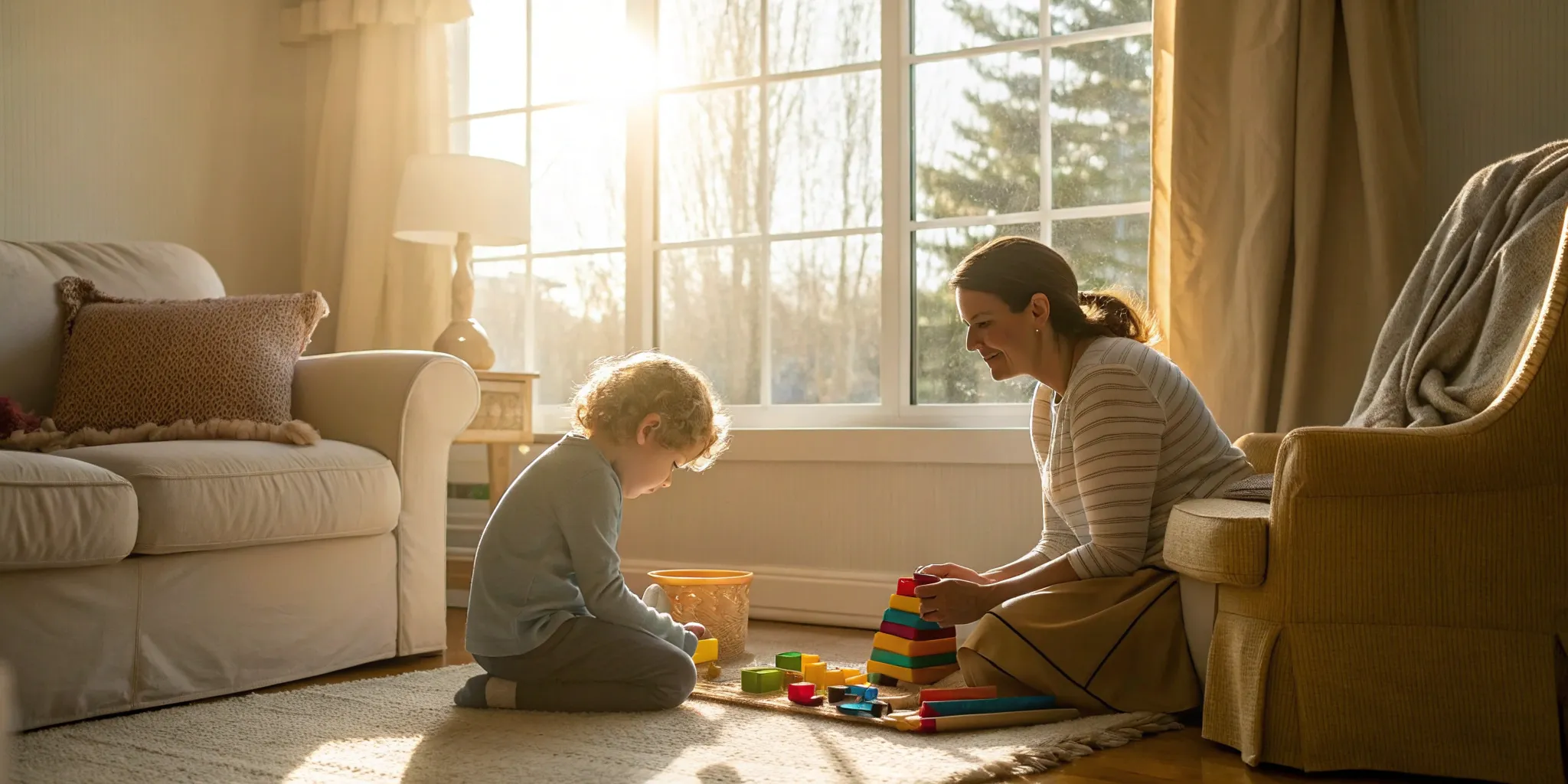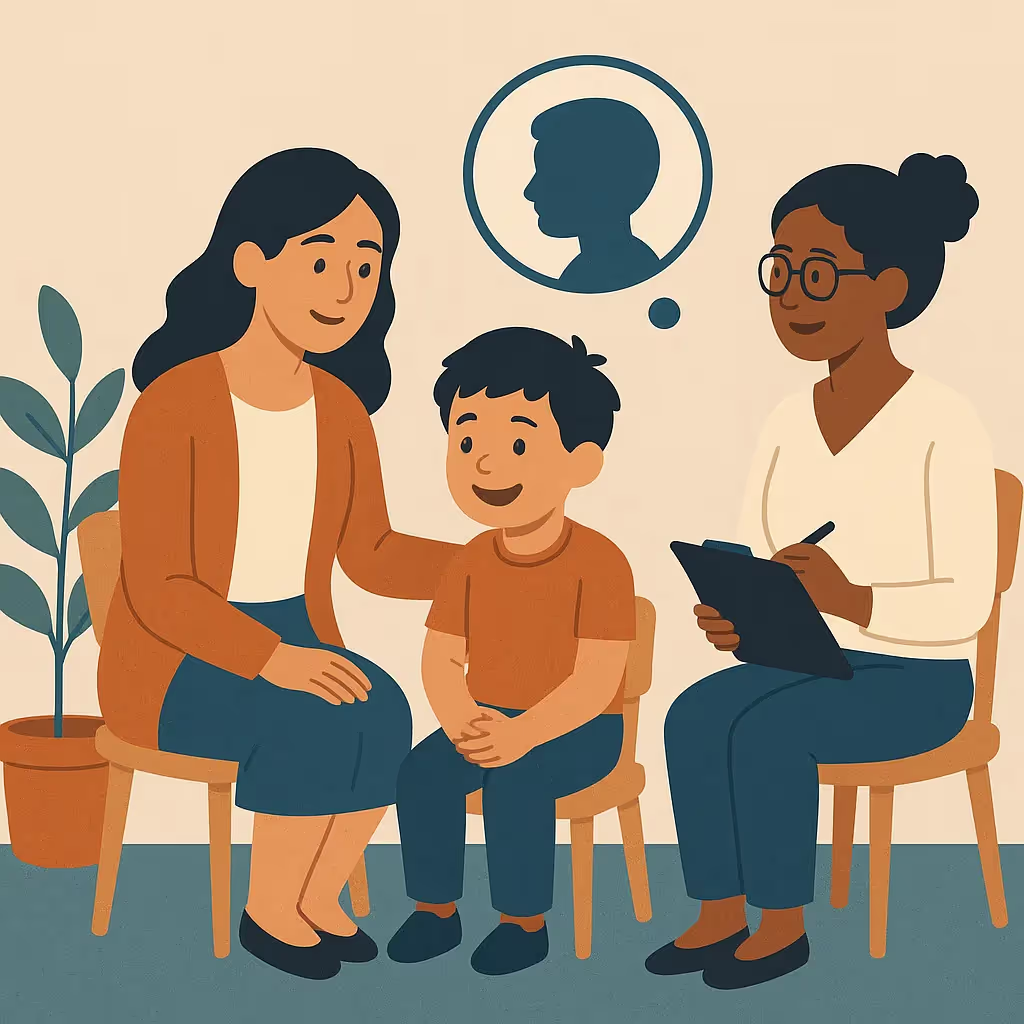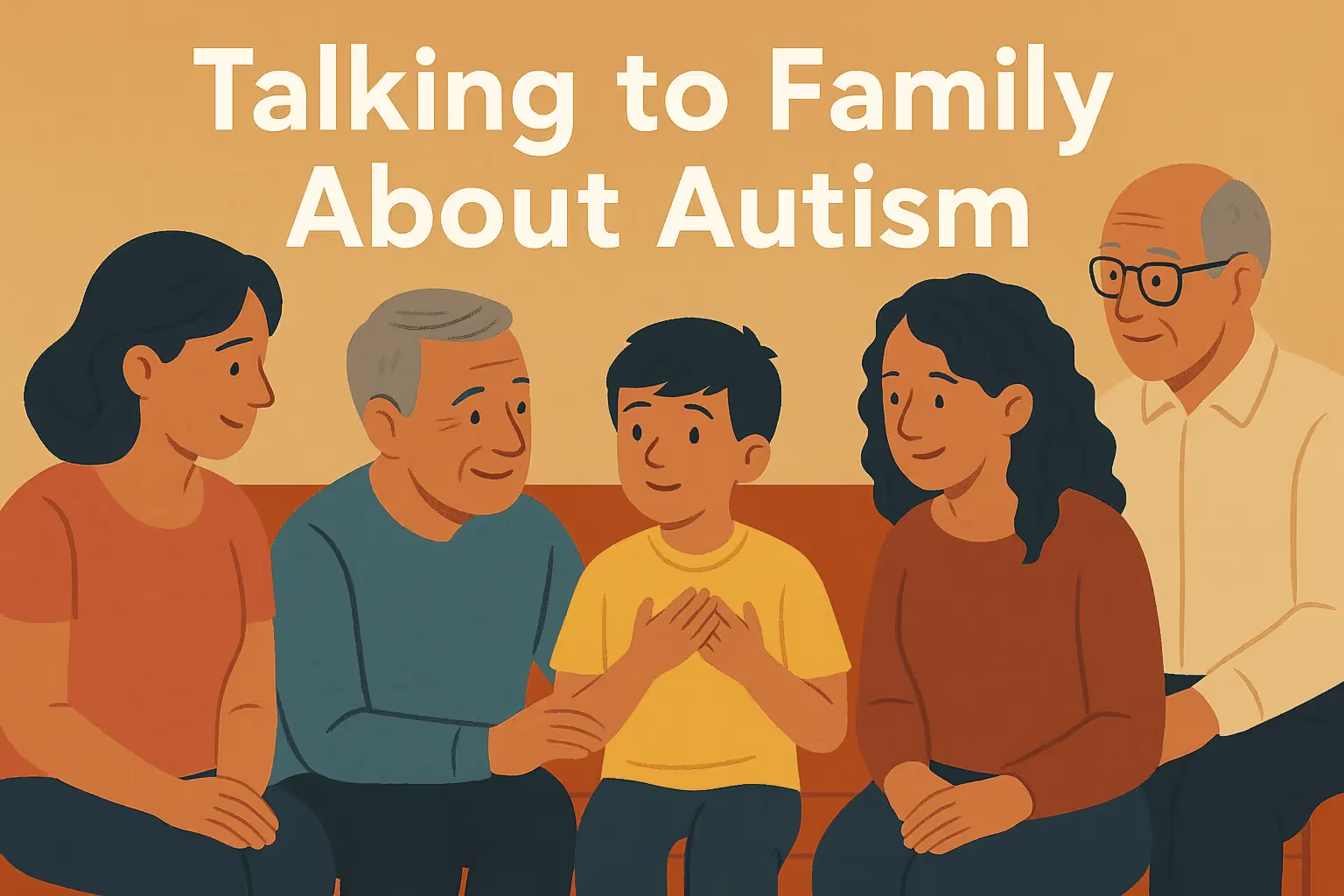Supporting Children Through ABA in Daycare Settings: Building Inclusive Communities from the Start
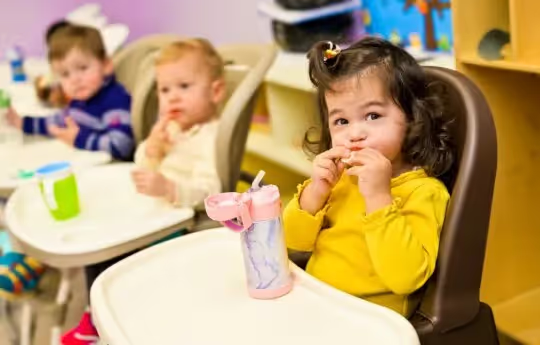
When most people think of Applied Behavior Analysis (ABA), they picture in-home therapy or clinical sessions. But for many families, the daycare center is where their child spends a significant part of their day. Bringing ABA strategies into daycare settings can make a meaningful difference, helping children build skills where they naturally learn, play, and connect with others.
Perhaps just as importantly, daycare-based ABA helps normalize care. When ABA happens in everyday spaces, alongside peers of all abilities, it sends a powerful message: therapy isn’t something separate. It’s simply part of how we support each child’s growth.
Why Daycare Matters in ABA
Daycare environments offer unique opportunities for children to practice communication, social interaction, and adaptive skills in real-time. Unlike one-on-one home sessions, daycare settings are filled with peers, routines, and group activities that closely mirror the demands children will face in school and in the community.
When ABA services are thoughtfully integrated into daycare, children can:
- Generalize learned skills across people and environments
- Practice social skills with same-age peers
- Receive consistent support throughout their day
- Develop greater independence in group routines
These are skills that aren’t just taught, they’re lived. Daycare provides children with a natural, supportive environment where those lessons take root.
A Game-Changer for Working Parents
Daycare-based ABA doesn’t just benefit the child, it can also make life more manageable for working families.
For many parents, traditional ABA models require taking time off work for home sessions or clinic appointments during the day. This can lead to difficult choices between providing therapy and meeting work or financial responsibilities.
When ABA happens at daycare:
- Parents don’t have to leave work for mid-day sessions.
- Therapy can fit into the child’s existing routine without disrupting family schedules.
- Progress happens while parents can confidently focus on work, knowing their child is being supported.
This flexibility allows parents to stay fully engaged in their careers while still accessing high-quality care for their child.
ABA in Daycare Supports Inclusion
Some schools and daycare centers make a deliberate effort to keep children of all needs levels together. They build classrooms where neurotypical children and children with developmental differences learn side by side.
This model benefits everyone.
When ABA providers work within these inclusive settings:
- It normalizes therapy as just another part of the day, not something “other.”
- It gives neurotypical peers early, positive exposure to diversity and empathy.
- It fosters true belonging instead of separation.
Children in inclusive environments tend to develop stronger social-emotional skills and more accepting attitudes. These are lessons that ripple into families, classrooms, and entire communities.
Common ABA Goals Addressed in Daycare
ABA in daycare often focuses on:
- Communication Skills: Requesting items, making choices, using words or communication devices with peers and teachers.
- Social Skills: Turn-taking, playing cooperatively, and joining group activities.
- Adaptive Skills: Washing hands, eating independently, following simple instructions in group settings.
- Behavioral Support: Managing transitions, reducing challenging behaviors, and learning alternative ways to express needs.
Collaboration is Key
For ABA to be successful in daycare, collaboration between daycare staff, ABA providers, and families is essential. No one should be working in isolation. Some key practices include:
- Clear Communication: Providers and daycare staff should share goals, strategies, and daily updates.
- Staff Training: Simple, practical training helps daycare teachers understand how to support the child consistently.
- Respecting Daycare Routines: ABA providers should work within the natural flow of the daycare day, not disrupt it. The goal is to support inclusion, not create a separate experience for the child.
When everyone is on the same page, the child benefits from seamless, coordinated support throughout their day.
Benefits for Everyone
When done well, ABA in daycare isn’t just good for the child receiving services, it strengthens the whole daycare community.
- Teachers feel more confident supporting a wide range of needs.
- Peers build acceptance, patience, and social awareness.
- Parents see smoother progress across home, daycare, and future school settings.
Inclusion is not just a philosophy, it’s something that can be actively built when therapy and typical experiences happen side by side.
Things to Consider
- Consent: Parents must provide permission for ABA services to take place at daycare.
- Space: Daycares must be willing to allow providers on-site and offer an appropriate space for sessions if needed.
- Insurance: Some insurers may have specific rules about community-based services. Coordination is key.
How Alpaca Health Can Help
At Alpaca Health, we believe daycare-based ABA should be accessible to every family who wants it. We know that navigating this process can feel overwhelming, but you don’t have to figure it out alone.
We support families every step of the way.
We can:
- Help you find the right provider who offers in-daycare services
- Coordinate with your daycare to ensure a smooth partnership
- Work with you on insurance and paperwork to remove common barriers
Daycare-based ABA is possible, and it’s a powerful way to build more connected, inclusive communities. When therapy happens in natural settings, children grow with their peers, not apart from them.
If you’re interested in exploring daycare-based ABA, reach out anytime. We’re here to help make it happen.
High Quality, Local ABA
If you are ready to partner with a local BCBA and receive the highest quality of care, reach out today!





